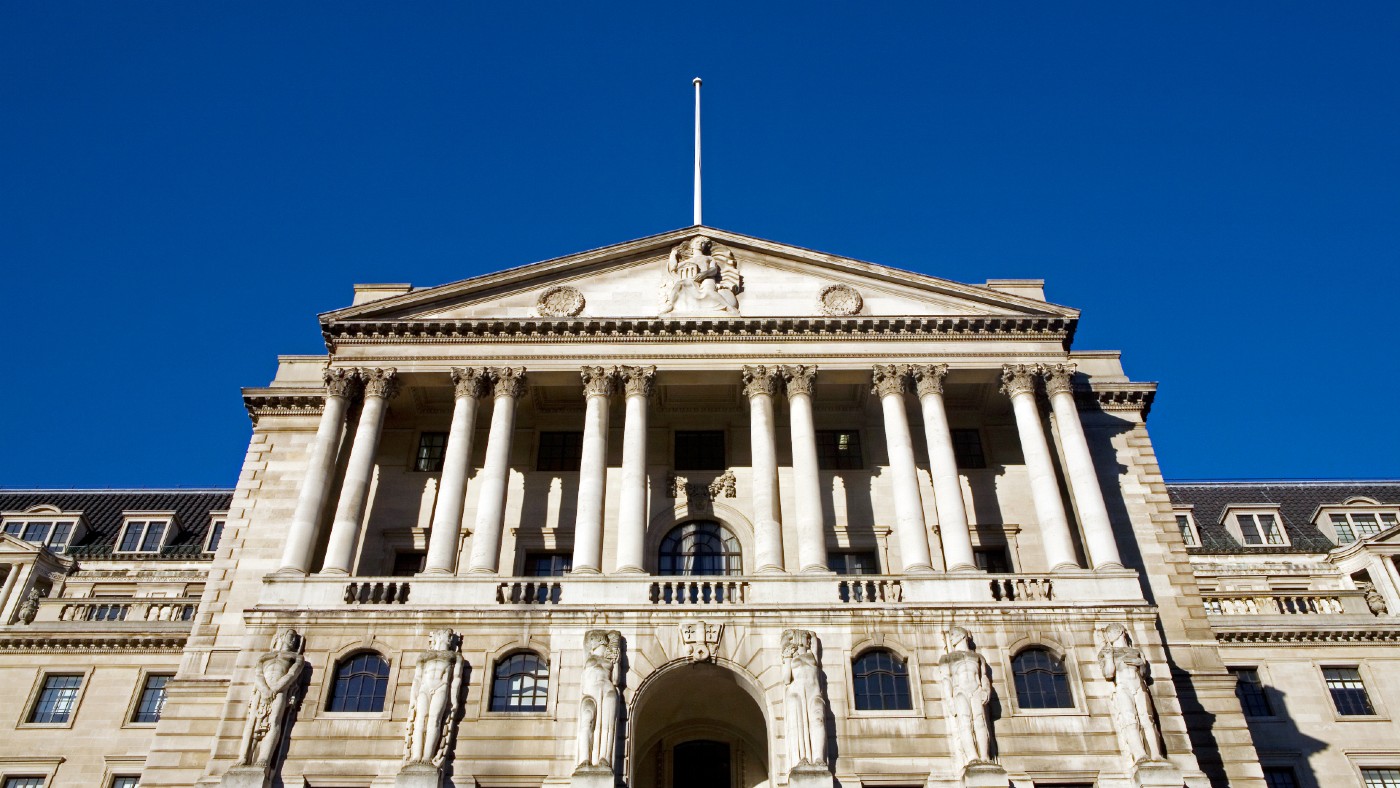The gilts crisis – a ‘wake-up call for the rest of the world’
The Bank of England is struggling to head off more market carnage. Other countries should take note

A free daily email with the biggest news stories of the day – and the best features from TheWeek.com
You are now subscribed
Your newsletter sign-up was successful
The Bank of England has been drawn into a “risky game of financial Whac-A-Mole”, said Neil Unmack on Reuters Breakingviews. As the sell-off of gilts rekindled this week – ahead of the expiry of the Bank’s emergency £65bn bond-buying programme on Friday – the BoE was forced to intervene on two consecutive days to restore calm in the £2.3trn market, and “avert a fire sale by pension funds”. Yet there are many signs that the market is still “distressed”.
The Chancellor, Kwasi Kwarteng, has pledged to bring forward to 31 October a plan outlining how he will “cut borrowing over the medium term”. But according to the Institute for Fiscal Studies, he’ll need to cut spending by £62bn by 2026 to stop debt rising relative to GDP. “That looks politically implausible.” Without a credible fiscal strategy, investors may continue to shun UK gilts, putting the Bank “under more pressure to help”. Yet the more Governor Andrew Bailey intervenes, “the more he will be accused of propping up a broken administration”.
To make matters worse for Bailey and Kwarteng, this crisis is playing out as they face a close encounter with critics of the international kind. Both are in Washington this week, attending the annual meeting of the IMF. For Kwarteng, in particular, it is likely to be an “awkward first date” after the “very public dressing down” the IMF gave him over his tax and spending plans, said Richard Partington in The Observer. Bailey will also come under pressure “to reassure” international investors that “the market dysfunction is over and that the BoE has a grip on inflation”, said the FT.
The Week
Escape your echo chamber. Get the facts behind the news, plus analysis from multiple perspectives.

Sign up for The Week's Free Newsletters
From our morning news briefing to a weekly Good News Newsletter, get the best of The Week delivered directly to your inbox.
From our morning news briefing to a weekly Good News Newsletter, get the best of The Week delivered directly to your inbox.
‘A sticking plaster’
Despite the Bank’s efforts, there is plenty of scepticism out there. HSBC’s head of UK rates strategy described the first intervention as “a sticking plaster”. Others have accused the Bank of not putting its money where its mouth is, said Patrick Hosking in The Times. On Monday, it boosted its potential buying capacity to £10bn a day, yet actual purchases were a more “modest” £853m, and the sell-off intensified.
A name that keeps coming up in conversations with investors, said Katie Martin in the FT, is that of James Carville – the Clinton adviser who remarked in 1994 that he’d like to be reincarnated as the bond market because “you can intimidate everybody”. In the period after the financial crash, governments were largely able “to ignore markets” as central banks pushed borrowing costs downwards, and “complacency set in”. High inflation has changed that – and not just in Britain. The “bond vigilantes” are back. The UK’s fiery experience over the past few weeks should be “a wake-up call for the rest of the world”.
A free daily email with the biggest news stories of the day – and the best features from TheWeek.com
-
 What to know before filing your own taxes for the first time
What to know before filing your own taxes for the first timethe explainer Tackle this financial milestone with confidence
-
 The biggest box office flops of the 21st century
The biggest box office flops of the 21st centuryin depth Unnecessary remakes and turgid, expensive CGI-fests highlight this list of these most notorious box-office losers
-
 The 10 most infamous abductions in modern history
The 10 most infamous abductions in modern historyin depth The taking of Savannah Guthrie’s mother, Nancy, is the latest in a long string of high-profile kidnappings
-
 Currencies: Why Trump wants a weak dollar
Currencies: Why Trump wants a weak dollarFeature The dollar has fallen 12% since Trump took office
-
 Elon Musk’s starry mega-merger
Elon Musk’s starry mega-mergerTalking Point SpaceX founder is promising investors a rocket trip to the future – and a sprawling conglomerate to boot
-
 TikTok: New owners, same risks
TikTok: New owners, same risksFeature What are Larry Ellison’s plans for TikTok US?
-
 Will SpaceX, OpenAI and Anthropic make 2026 the year of mega tech listings?
Will SpaceX, OpenAI and Anthropic make 2026 the year of mega tech listings?In Depth SpaceX float may come as soon as this year, and would be the largest IPO in history
-
 Leadership: A conspicuous silence from CEOs
Leadership: A conspicuous silence from CEOsFeature CEOs were more vocal during Trump’s first term
-
 Ryanair/SpaceX: could Musk really buy the airline?
Ryanair/SpaceX: could Musk really buy the airline?Talking Point Irish budget carrier has become embroiled in unlikely feud with the world’s wealthiest man
-
 Powell: The Fed’s last hope?
Powell: The Fed’s last hope?Feature Federal Reserve Chairman Jerome Powell fights back against President Trump's claims
-
 Taxes: It’s California vs. the billionaires
Taxes: It’s California vs. the billionairesFeature Larry Page and Peter Thiel may take their wealth elsewhere